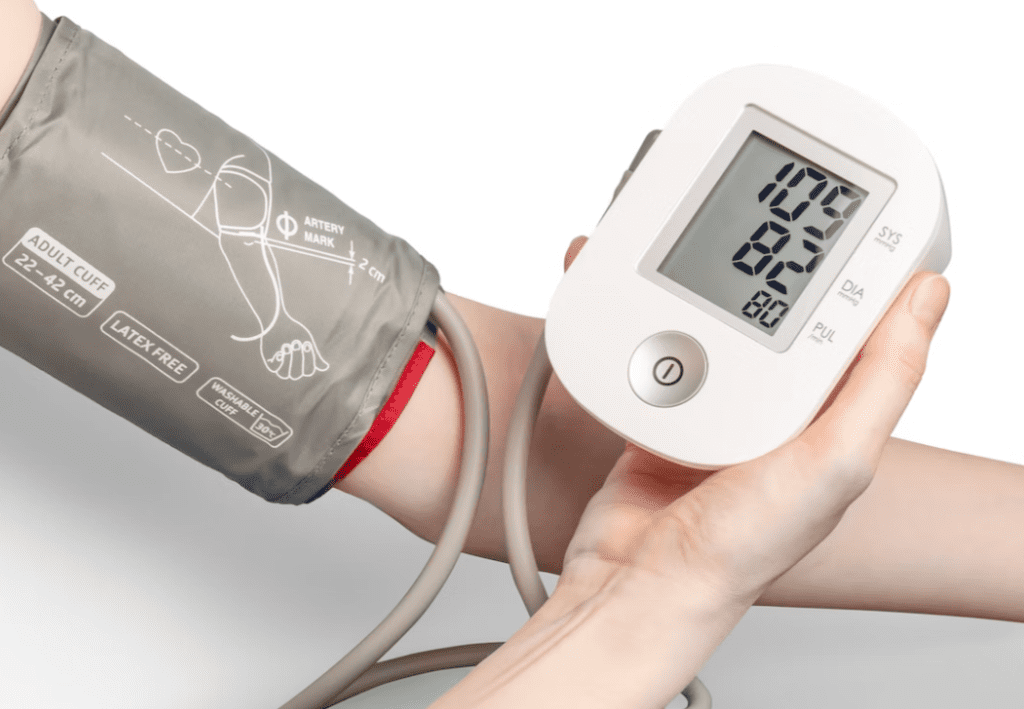Will Meditation Help Lower Blood?
Learn about meditation can help people lower their blood pressure and improve their insulin resistance.

Selfpause Affirmation App
Download the app to get 1,000’s of affirmation meditations and everything you need to write, record and listen to your own.
If you are interested in lower your blood pressure, meditation may be a great option. Although many people find it difficult to sit in stillness for long periods of time, meditation can be beneficial for a number of reasons. One of the main benefits is better mental health. It can also help you reduce your stress levels.
Transcendental Meditation

In a recent study, researchers found that transcendental meditation significantly reduced blood pressure. They also found a lower heart rate and improved insulin resistance in those who practiced the technique. The results were published in the Archives of Internal Medicine. The study also suggested that the practice may improve conditions known as metabolic syndrome, which increases the risk of cardiovascular disease and coronary heart disease.
The study was conducted on adolescents who had high-normal blood pressure. They were treated with a transcendental meditation program and saw steady blood pressure reduction over a four-month period. Furthermore, the participants maintained lower pressures. It was not clear which of these results were due to a single transcendental meditation practice, or if they were the result of several factors.
Transcendental meditation is a natural way to reduce stress. It reduces blood pressure by reducing the levels of stress in the body. According to research funded by the National Institutes of Health, the technique has significant benefits in reducing blood pressure. It was found to be more effective than other stress-reduction techniques. In one study, participants who practiced the technique experienced a 15 percent reduction in their systolic and diastolic blood pressure. This is a significant reduction in the risk of cardiovascular disease.
Although the research on the effectiveness of transcendental meditation on high blood pressure is limited, it has been proven to lower the blood pressure levels of people who have coronary artery disease. Researchers at an academic medical center in California looked at 84 patients who had high blood pressure and studied the effects of the meditation over a period of 16 weeks. The subjects in the study were taught to sit in a comfortable position and repeat a mantra. The practice is not difficult, and anyone can do it.
Mindfulness-based stress reduction

Hypertension is a serious health problem that affects one in three American adults. Uncontrolled blood pressure is associated with an increased risk of cardiovascular disease, stroke, dementia, and organ damage. Meditation and mindfulness-based stress reduction may help patients lower their blood pressure. According to a study conducted by Kent State University, MBSR reduced blood pressure in patients with elevated blood pressure. Researchers compared the effects of the technique to a relaxation technique known as progressive muscle relaxation.
While the study’s results are encouraging, the authors caution that meditation and mindfulness-based stress reduction are not a substitute for blood-pressure medication. Further studies are needed to test whether meditation and mindfulness-based stress reduction can decrease blood pressure consistently and safely. Further, more studies are needed that are sufficiently powered, and high-quality, as well as studies that include out-of-office BP measurements.
In the current study, meditation and mindfulness-based stress reduction significantly reduced diastolic blood pressure. These results are significant, given that the mindfulness intervention reduced diastolic blood pressure by nearly two millimeters of Hg compared to the control group. The results were similar even for participants who had higher levels of blood pressure before the intervention.
The study also included a comparison between mindfulness and standard lifestyle modifications in patients with hypertension. Participants in the MBSR group attended 2.5-hour sessions for eight weeks, where the instructors facilitated a series of exercises. They were then encouraged to continue practicing the exercises at home. Afterward, the researchers took blood pressure readings from the MBSR group and the control group.
Several studies show that meditation and mindfulness-based stress reduction can reduce high blood pressure. The practice is increasingly popular with people looking for ways to reduce their stress levels and improve their health. This practice also helps those with depression or anxiety relieve their symptoms.
Mediation

Meditation is a well-known way to relieve stress, and a new study suggests it will lower blood pressure. Transcendental meditation has been shown to lower systolic and diastolic blood pressure by 3.5 points and 3.4 points, respectively. In a study published in the American Journal of Hypertension, students were randomly assigned to two groups: one group was instructed in the practice of transcendental meditation, and the other group attended health education classes. Both groups wore a 24-hour blood pressure monitor. This device measured their blood pressure every 20 minutes throughout the day, and every 30 minutes during the night.
Mediation can lower blood pressure by reducing stress and improving mental health. The AGReMA Statement provides a guideline for reporting mediation analyses. Studies of this type of intervention are rare but have been shown to reduce blood pressure. In fact, in some cases, meditation reduces blood pressure by as much as 20 points.
Mediation does not lower blood pressure

Studies have shown that meditation does not lower blood pressure. However, this does not mean that meditation is not beneficial for your health. Many benefits of meditation include a reduced risk of stroke and reduced blood pressure. It also increases mental health. If you suffer from high blood pressure, it’s important to consider meditating on a regular basis.
There are several different types of mediation. Some are more beneficial than others. A mediator will be able to find one that suits their personality. One way of mediation works is by focusing on a particular subject to help you overcome your symptoms. In this method, you don’t need to be particularly religious or spiritual to achieve these benefits.
A controlled direct effect refers to the effect of a variable on a measurable outcome. This effect is particularly relevant for therapeutic purposes because it is part of the overall effect of higher blood pressure targets without arrhythmia. A mediated effect consists of a composite of interaction and mediation effects and represents the theoretical proportion of adverse outcomes that can be eliminated by a proposed mediator.
Mediation has been found to reduce high blood pressure and is effective in treating many ailments. It has been proven that antidepressants can lower blood pressure. The blood-pressure medication can help with many of these problems. If you are worried that mediation will affect your health, you should take care of it.
Whether meditation actually lowers blood pressure remains an open question, but there are a few promising outcomes. According to a recent study, meditators had lower blood pressure than nonmeditators. In addition, they had lower rates of heart attacks, strokes, and mortality. This means that meditators might be able to significantly reduce their blood pressure and reduce the risk of other cardiovascular diseases.
Although there are a number of factors that contribute to high blood pressure, meditation is an important component of reducing blood pressure. Studies have shown that stress can raise blood pressure and meditation has been found to help calm the mind. Stress, anger, and lack of sleep are known triggers for high blood pressure. Practicing meditation regularly has many health benefits, including improving the quality of sleep and the ability to cope with stressful situations.
Many studies have found that transcendental meditation is effective at lowering blood pressure, but more research is needed to verify the results. While mindfulness and Zen meditation are praised for their ability to lower blood pressure, the American Heart Association advises caution when practicing these techniques. The lack of quality studies means that there are no definitive results.
Researchers also need to develop more robust inclusion criteria. Ideally, these studies would include a wide variety of populations, including people with coronary artery disease. This would allow them to examine other potential moderators. Because the effects of meditation are not fully understood, future studies need to be larger and include control groups, such as nonmeditators.
While meditation is a great practice for lowering blood pressure, some patients find it difficult to adhere to prescribed medicine. Furthermore, these medications can cause side effects, and some patients are not able to lower their BP. Thus, many people are turning to meditation as a more natural way to control their pressure.
Our Top FAQ's
There is some evidence to suggest that meditation may be beneficial for lowering blood pressure. In general, meditation is a relaxation technique that involves focusing the mind on a particular object, thought, or activity to achieve a mentally clear and emotionally calm state. This state of relaxation can help to reduce the body’s physical response to stress, which can in turn help to lower blood pressure.
When the body is under stress, it releases hormones such as adrenaline and cortisol that can increase heart rate and blood pressure. Meditation can help to reduce the body’s stress response, which can in turn help to lower blood pressure. By inducing a state of relaxation, meditation can help to decrease heart rate, dilate blood vessels, and reduce blood pressure.
In addition to potentially helping to lower blood pressure, meditation can also provide a range of other benefits. These may include reducing stress and anxiety, improving mood, and increasing feelings of well-being. Regular meditation can also help to improve overall health and well-being, and may even have long-term effects on overall health and longevity.
If you are interested in using meditation to help manage your blood pressure, here are a few tips to get started:
- Find a quiet, comfortable place to meditate. This could be a dedicated meditation space in your home, or simply a quiet corner where you can sit or lie down comfortably.
- Choose a meditation technique that works for you. There are many different types of meditation, including mindfulness meditation, transcendental meditation, and mantra meditation. Experiment with different techniques to find the one that works best for you.
- Start with short sessions and gradually increase the length of time you meditate. It’s important to start slowly and gradually build up your meditation practice. Begin with a few minutes of meditation each day and gradually increase the length of time you meditate as you become more comfortable with the practice.
As with any new health practice, it’s important to talk to your doctor before incorporating meditation into your blood pressure management plan. Your doctor can provide personalized advice and guidance based on your individual health needs and goals. It’s also important to remember that meditation should not be used as a substitute for medical treatment, and you should continue to follow your doctor’s recommendations for managing your blood pressure.
